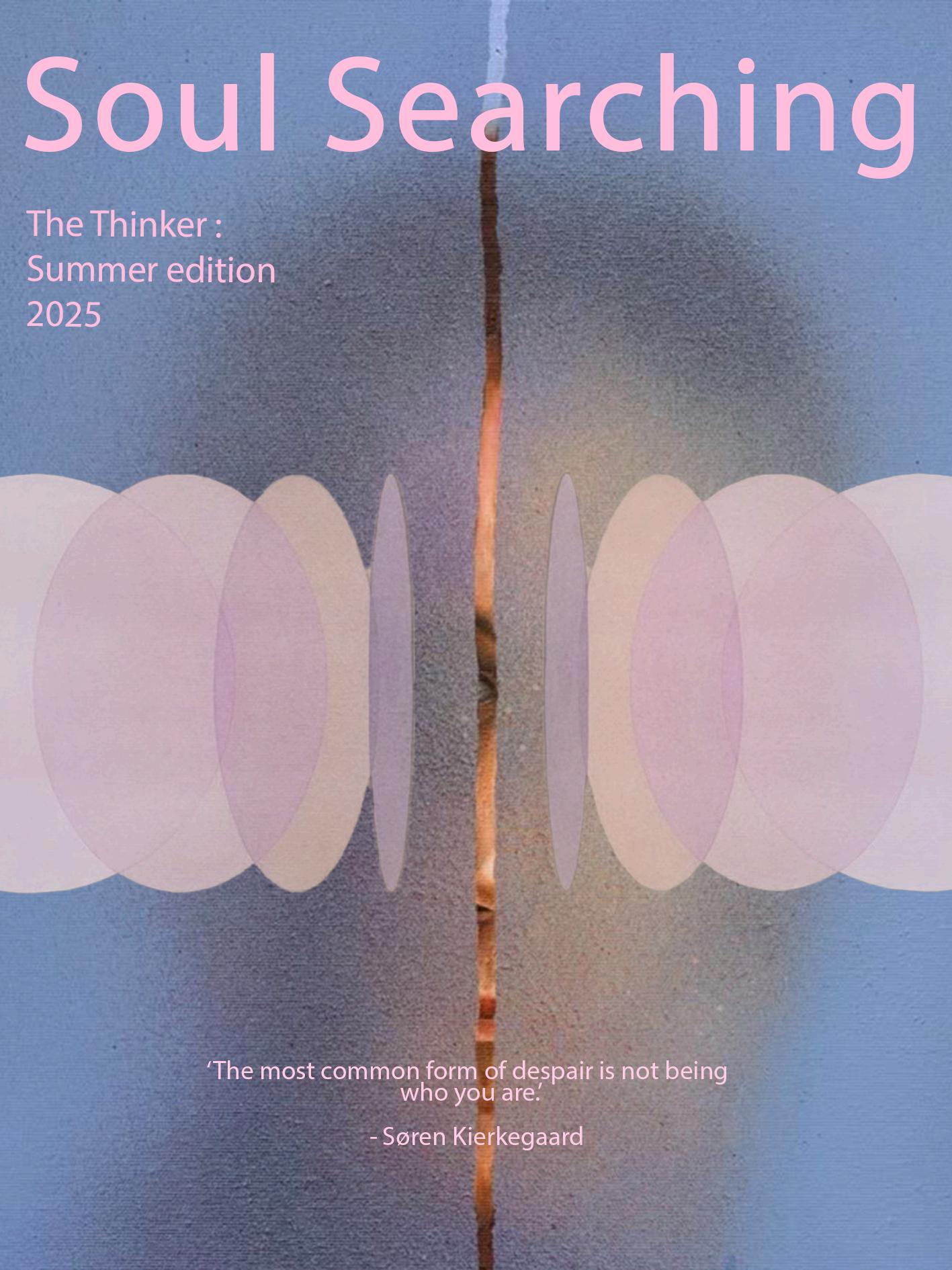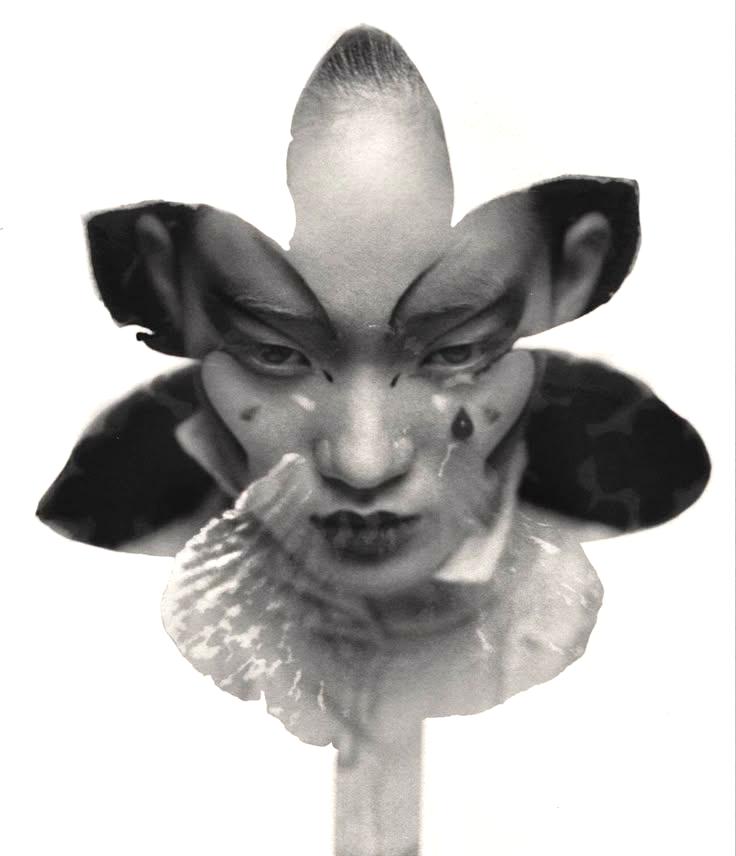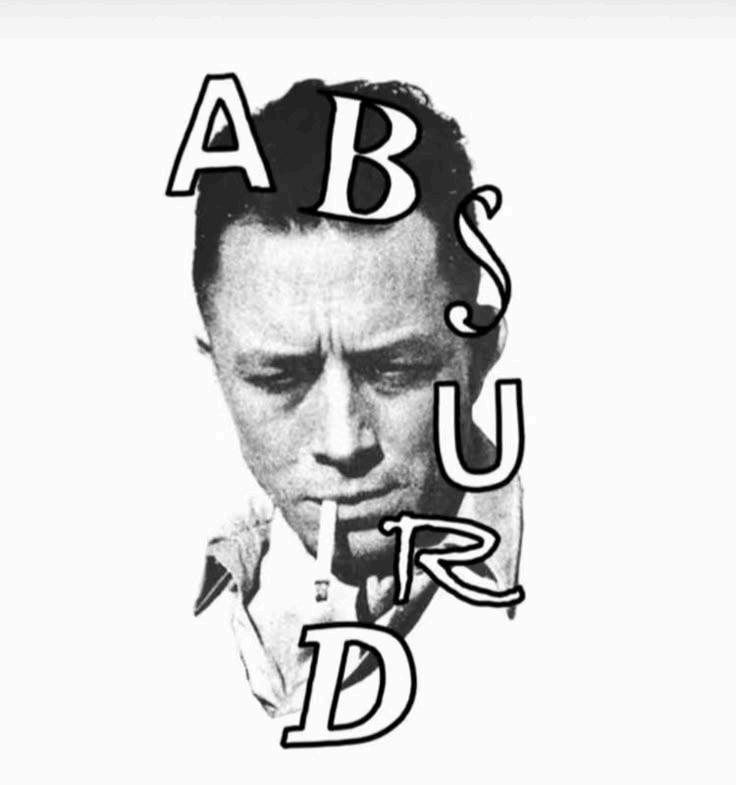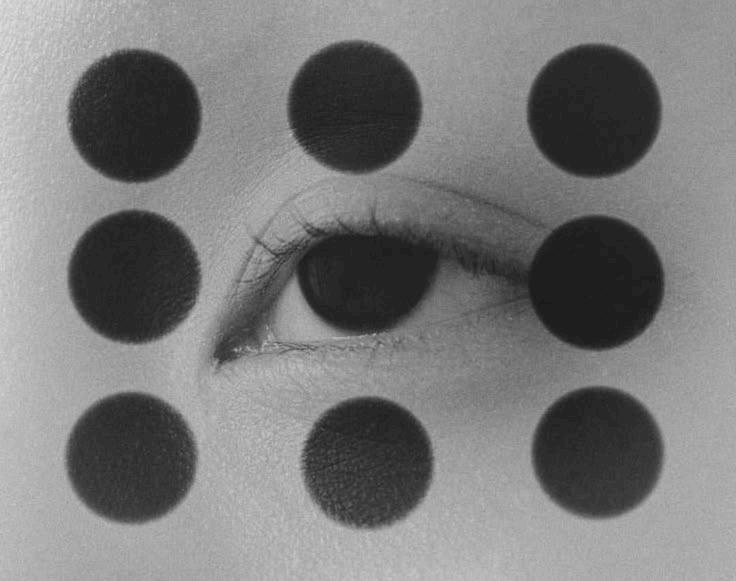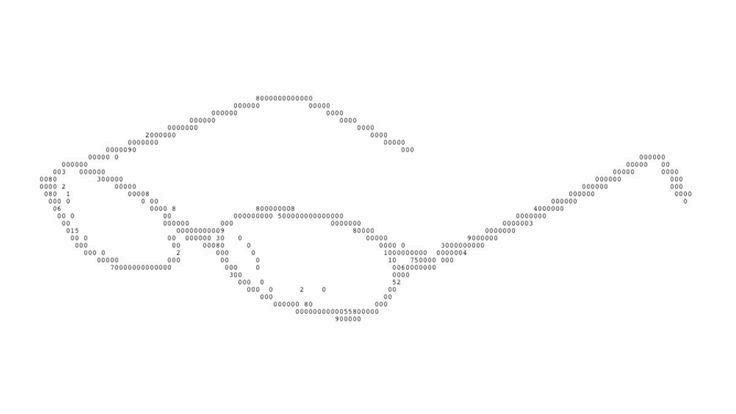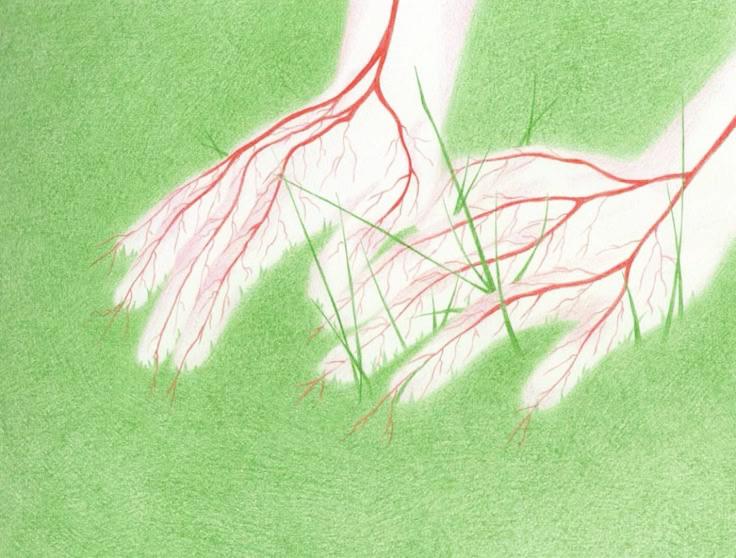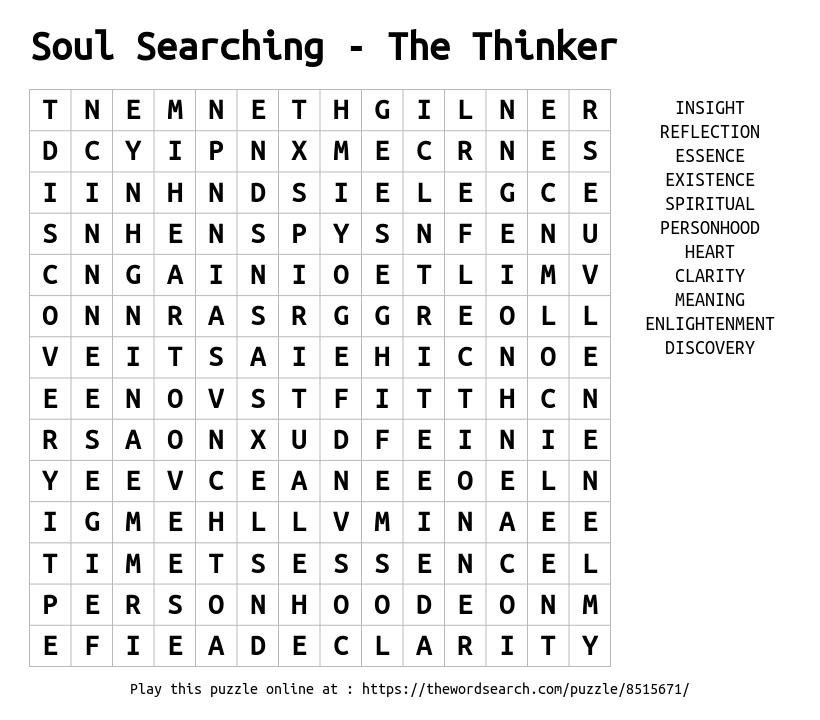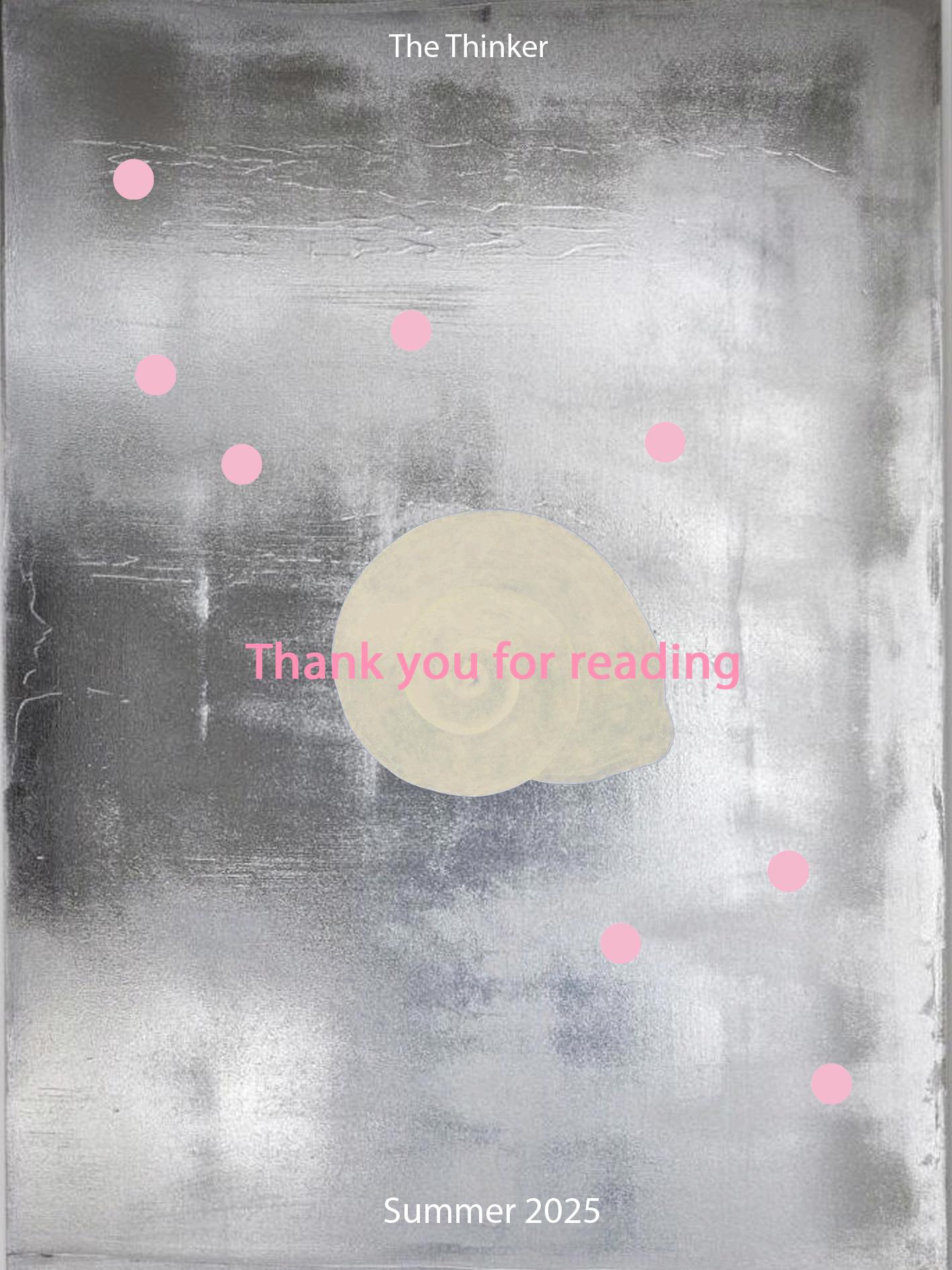“Knowingyourselfisthebeginningofallwisdom”-Aristotle
‘Soul Searching’ andtheknowledgeorunderstandingofwhatconstituteshumanexistenceandbeing hasbeencentraltomanyphilosophicalandethicalexplorationsthroughouttime Throughthe explorationandscrutinyofconceptssuchasagency,consciousness,freewillandthehuman conscience,philosophers,writers,artists,psychologistsandscientistsalikehaveaimedtodetermine whatisimbuedin‘Personhood’.Thisissueof The Thinker darestoembarkonasearchforthehuman essenceandthelocusinwhichitiscontained,whetherthatbethemind,bodyorsoul
Fromtheexplorationoffamilialrelationshipsindefiningidentity,totheroleofartandpoetryin perception,fromthebiologyofnon-humanmindstotheanalysisofperformativefacadesinshaping publicperception,weexplorehowthesoulismanifestedwithinhumans,howitisrecognised,and howitdefineshumanbehaviour.
Weinviteyoutoreadwithanopenmind,toquestion,tochallenge,andtoreflect Forinsearchingfor thesoul,wemayhopetobetterunderstandourselvesinthewiderquestforwisdom
Happyreading, Safia,Lara,Maddie,AmandineandSerena
T.SEliot’sWarPoetry:TheErosionofIdentityintheAftermathofWar OliviaWeber
Identityismostfragilewhenadaptingtoan environmentwhichhasjustbeendisruptedby conflict,warespecially.Theevolutionof modernismhasemergedwiththedestruction causedbythefirstworldwar,andwriters havegrowntocapturestoriesinawaythat reflectsthedisillusionmentwithinsociety Not onlydoestheidentityofsocietyturnchaotic anddisconnected,buttheidentitiesof individualsdetachthemselvesfromthe cohesionofapreconflictcivilization The poetryoftheearlytwentiethcenturybears witnesstothedisconnectednarrativesofa country’scitizens,andTSEliot’sresponseto thewarisparticularlyhaunting Inhispoems
The Waste Land and The Hollow Men,T.S Eliotdepictsthefragilityofone’sidentityina postwarstate Withthedevelopmentof conflictandtheworseningofsociety’s stability,one’ssecurityinoneselfdeteriorates, erodingintoalmostnothing.Theybecome themselvesblendedintotheunstablestateof society,losingtheirsenseofselfand becomingdetachedfromtheidentitythey usedtohave Eliotisaptatconjuringimagerythatreflectstheemptinessattachedwiththelackof associationwithone’sownidentityaswellasusingthestructureofhiswritingtorepresentthelackof structureinsociety.T.SEliot’spoetryresonateswiththediminishingidentitywithinsocietyinapost worldwarstate.Hearticulatesthelifelessnesswithinthepeopleandplacesleftalivetoreconstruct boththeenvironmentandthemselves
Oneofhismostwellknownpoems, The Waste Land,ahauntinganddepressingnarrationof lifeafterwarquestionsthecelebratoryresponsetovictory,insteadfocusingonthedisillusionment manywerefacedwithinresponsetotheirshockofthewar Heopensthepoemwith‘aprilisthe cruellestmonth’subvertingChaucer’s The Canterbury Tales,andcreatinganimagethatwould usuallyberefreshing,andinsteadismelancholic.WheremostpoetryusesthemonthofApriltorefer tospringandnewlife,Eliotmanipulatesitsyouthfulqualitiestomakethemshocking–inadangerous way Hecontinuesthisideathroughvariousmetaphorslateroninthepoem,suchas‘lilacsoutofthe deadland.’Inimplantingimagesofinnocenceandlifewithinabigger,morelifelessbody,hedrawsa
paralleltothepeopleafterthewar Whileattemptingtorebuildcities,theywerealsofacedwith devastatinglossesandwounds:bothphysicalandemotionalthatmadeitnearlyimpossibletoreturn tothewaythingsoncewere Hislines‘summersurprisedus’and‘winterkeptuswarm’emphasises one’sinabilitytocomprehendhowtocarryonlivinginsuchabrokensociety Facedwithpeaceand ‘warmth’afterdisruptionanddestruction,societyultimatelybecomesdisillusioned,detached,and confused.Eliotstructureshispoemwithoutclarity,usingmultiplicityandpluralitytoreflectthestate ofsociety Withasporadic,deconstructed,anddisconnectedstructurethroughoutthe Waste Land he suggeststhatadditionally,itisone’sidentitythatisjustaschaoticandincohesiveasthestructureof hispoem.Inthewakeofsuchadetrimentalconflict,civilisationdeterioratesintoconfusionand chaos,whichultimatelyreflectshowone’ssenseofselfcanbelost,especiallywhenthatidentityhas changedfrombeforeandafterthewar Withconflictnotonlycomeschange,butitbringsadifficulty inunderstandingwhoonehasbecomewhenfacingthatconflict Manysoldiersstruggledwithshell shockorPTSD,asseeninWilfredOwens’poemsandmoreofEliot’s,oftenresultinginalossof anythingidentifiableaboutthemselves,amorerecogniseableexampleseeninWoolf’sSeptimusfrom Mrs Dalloway
Eliotposesthequestion,howdoesonemaintaintheirsenseofselfinthemidstoftrauma,andisit possibleto?
Inhispoem The Hollow Men, Eliotanswersthisquestion.Fromthethemesofthepoem,itseemsthat Eliotbelievesitimpossibletomaintainone’sidentitywhenfacedwithconflictandtrauma. The Hollow Men depictsaparticularlyhopelessimageofidentitypostWorldWarI,andreflectsacertain voidfoundwithinone’sexistence,perhapswhereastrongersenseofselfoncewas Heusesimagery ofdecayandlifelessnesstoemphasisethehollowexistenceofindividualswhohavealsolostasense ofpurposeandconnection,whilegainingoverwhelmingfeelingsofconfusionanddisassociation His line,‘Thestuffedmenleaningtogetherheadpiecefilledwithstraw’particularlydepictsthisideaof internalemptiness,forhere,Eliotcompareshumanbeingstoscarecrows,figuresstuffedwithstraw, thereforehighlightingsociety’sdetachmentfromhumanfeelingintheaftermathofconflict. Additionally,heusestheimageryofthelandscapeinthesameway:‘Thisisthedeadland,thisisthe cactusland,’emphasisingthisideaofdeathwithinaworldthatisstill,physicallybreathing The shiftingperspectivesanddisjointedlanguagewithinthepoemmirrorsthefragmentationand disillusionmentofthepostwarworld,whichinadditionexaggeratesthedistanceforgedbetween identityandsociety Becausethepeoplewithinsocietybecomedetachedandalienatedfromtheirown identities,theythereforebecomedistancedfromsociety’sidentityasawhole,losingnotonlytheir senseofself,buttheirassociationtotheirhome.Withhisline,‘Therearenoeyeshereinthisvalley ofdyingstars,’Eliotreflectsthewayinwhichsocietybecomesblindtothenormaleventsofthe world,eventhebeautifulonesbecauseintheirgrieftheyhavelostbothfaithandconnection Eliot’s The Hollow Men, capturesthecompletelossofidentitywithinasocietyattemptingtohealfromthe monumentalconflictwaris,andsuggeststhatitisunlikelyforthissenseofselftobefoundagain.
TSEliot’spoetryishauntinganddisturbinginthewayitsuggeststhatidentitycanbe destroyedwhentouchedbytrauma.Heemphasisestheideathatpeoplebecomefiguresofemptiness andaplaceitselfbecomesdefinedbydeathandloss,anditisnearlyimpossibletoretrievethe originalidentityoncecelebrated Finally,Eliotquestionsthevalidityofnewlifeandinnocencewithin adisruptedanddestroyedsociety,andhighlightsone’sinabilitytounderstandhowtoadapttoaworld oflifewhensoaccustomedtoaworldofcruelty.
TheQuietSelf:IsIdentityFoundinStillness? HannahCorcoran
Atthecenterofphilosophyliestheseeminglyunanswerablequestionabouthumannature:whoare webeyondourrolesandactions?Interestingly,manyphilosophiessearchfortheessenceoftheself notintheconstantmovementandactionoflifebutrathertheraremomentsofstillness,solitudeand self-reflection Butovershadowedbymodernlife’sconstantbusynessandtheendlesssearchfor validationanddistraction,thetruenatureofidentityislost.
Incontrast,inhisexplorationofhumannature,MicheldeMontaignehighlightedthatunderstanding oftheselfrequiresintrospectionintimesofstillness ThisvalueofthecalmismirroredinEastern philosophies,suchasTaoismandZen,whorecogniseidentityasarisingthroughpeacefulpresence andnon-action.Bothsuggestthetrueselfisrevealedinembracingstillnessratherthanthroughdoing andachieving Inthemodernday,withtheconstantstreamofstimulation,stillnesshasbecomearare luxury Stillnessheremeansnotonlyphysicalquietorsolitudebutalsomentalcalmnessandthe introspectivebreakinbusylifewhichallowsself-reflectiontoflourish.However,whencompeting withsocialmedia,incessantconnectivity,FOMOandmore,modernlifefailstoaccommodatesuch moments Theconstantengagementsplintersattentionandforcesidentityintofeelingexternal, controlledbyothersopinionsandperception.Reclaimingstillnessisacompleterejectionofthechase ofbusynessandleavesroomfortherescuingandrediscoveringoftheself.Inthisway,finding stillnessisanalmostrevolutionaryrefusaloftheceaselessnessofthenorm
MicheldeMontaigne,oneofthemostsignificantphilosophersoftheFrenchRenaissance,usedhis personalessaystyleofwritingasapersonalinquiryintohimself Hefamouslyclaimed“Iammyself thematterofmybook”,suggestingthecontentofhisessaysisadetailedexplorationofhisownlife andmind Hisessaysarefragmented,wanderingexplorationsintohisdeeplypersonalsoulratherthan thepolishedargumentsonemightexpect.Throughthis,Montaigneillustratesthatidentityis somethingfluidthatemergesinhonestself-reflection,contestingtheapparentmodernviewofitbeing publiclydisplayed Thiswasaradicalsuggestionatatimewhereidentitywassocloselylinkedto class,religionandpublicperception.Montaignehowever,soughttoreflectonhisfears,habits,and thoughts,insolitudeineffortstodiscoverhisnaturefromtheinsideout.Stillnessfacilitatedhis discoveries,allowingalldistractionsofsocialexpectationstobedrownedout,sohecouldfocuson recognisingthecomplexitieswithinhimself Heunderstoodittakescommitmenttoattemptthis process.Hedeclared“weareallpatchwork”,illustratinghisappreciationforthecomplexity, contradictions,andinconsistenciesfoundwithinhumannature Montaigneoptedtoembracethese, reinforcingthatidentityisachanging,multifacetedmatter,bestexploredinstillness Hisessays suggestthatquietintrospectionisbothreflectiveandfreeing.Itpermitsreconnectionwithwhoweare withoutanyonewatching.Thisisparticularlyrelevantintoday’sworldwhichseemsobsessedwith publicimage,suggestingtrueauthenticityisfoundthroughinactionratherthanwhateveronecurates publically
Incontrast,Easternphilosophies,especiallyTaoismandZenBuddhism,offeramoreprofound methodofself-investigationthroughstillness,embracingreflectionasamethodandwayoflife CentraltoTaoismistheideaof wu wei,whichtranslatesto“non-doing”or“effortlessaction” It doesn’texactlymeaninaction,butplacingprofoundtrustinthenaturalflowoflifeandnotforcing things TheTaoistheineffablepaththatflowsthroughallexistenceandonecanfindtheirsenseof selfnotthroughcontrollingitbutrather,followingit Themoreweforceactionorachievement,the furtherwedistanceourselvesfromwhowetrulyaresoparadoxically,bydoinglessandembracing
quiet,webecomemoreourselves ZenBuddhismfurthersthis Throughstillingthemindand meditation,Zenurgesyoutoletgoofthepartthatclingstoimage,controlandstatus-theego.By acceptingquietnessandstillness,practitionerscanfocusonthepresentandthroughthis,gainadeeper understandingofthemselves Zensuggeststheselfcannotbeexplainedbylogicorwords;it emphasisespersonalexperience Identityisn’tdescribed,it'sexperienced Stillnessistheenvironment inwhichtheselfmostclearlyappears,shownbyaZensaying:“Sittingquietly,doingnothing,Spring comes,andthegrassgrows,byitself”TheseEasternphilosophiessharetherejectionofthemodern ideathatconstantactivityleadstomeaninginlife Theyrejecttheconceptoffocusingonsuccessand action,insteadproposingthetruestidentityisfoundwhenwestoptryingtobecomeandinsteadjust bewhoweare.Manypeoplefearthesemomentsofstillness,asifsomethingismissingorit’sasign ofunproductivitybutthesephilosophiesarguethatoneismissingattentionratherthandistraction Activitieslikemeditation,focusedbreathingandwalkingprovideanopportunityforbothrestand reflection/reconnectionwiththeinnerself.Choosingjusttobeinplaceofbeingdefinedbywhatyou doisself-affirmation
Acrossthedifferentphilosophiescoveredtheargumentseemsclear:ouridentityisnotshapedby constantdoing,butdiscoveredinmomentsofcalmandreflection.WhetherthroughMontaigne’s introspectivesolitudeorthecalmnessofTaoistandZenpractices,stillnessisthepathto self-discovery
Likemother,likedaughter:towhatextentisaperson'sidentitydefinedby theirrelationshiptotheirparentalfigures?
SashaBeauregard
Humanshavetrieddefiningtheexactdefinitionofidentityandtheirsenseofselfsincethedawnof time,perhapsasawaytofindmoremeaningtotheirlives,orsimplyasawaytounderstandhowtheir actionsintheworldrelatetotheirownpsycheandnature Oneofthewaystheyhaveexplainedhow theselfdevelopsisthroughparentalfiguresandtheirimpactonthedevelopmentofidentityfrom childhood.Whileparentsareinnodoubtcentraltoearlyformationofselfhoodthroughtheirchild’s dependenceuponthemandthroughtheirfirstoutlookontheworldbeingmostlydictatedbysaid parentalfigure,otherfactorsliketheinternalisedauthorityfigureandtheformationofidentityasa personalstorywhichcanbealteredovertimeequallyaffectidentity.
Tounderstandtherootsofidentity,wemustbeginattheoriginoflifeitself:oneinfluentialtheory developedduringthe20thcenturysuggeststhatoursenseofselfisfundamentallyshapedbyearly attachmentandtherelationshipweformwithourprimarycaregiversfrombirth.Forexample,British psychologistJohnBowlbyoffersthefoundationaltheoryofattachment,whereheclaimsthatearly emotionalbondsbetweentheinfantandthecaregiversarecrucialforhealthypsychological development;ifthesebondsaretarriedinsomeway,itmayresultinthechildbeingunabletoform stable,lovingrelationshipsintheiradulthood.Bowlbysuggestedthatattachmentbetweenachildand acaregiveralsoservestokeepthemcloseasasurvivaltactic;hebelievedthathumanevolutionhad enabledchildrentobebornwithaprimalinstincttoformbondswiththeirparentsastheyareableto gainasenseofsecurityfromthecertaintythattheirbasicneedswillbemet,whichis fundamentalfor thechildrentobeabletoexploretheworld.ThisideawasstrengthenedbyMaryAinsworth’s “StrangeSituation”studyduringthe1970swherechildrenbetween12-18monthswereobservedas theywerebrieflyseparatedandthenreunitedwiththeirmothers Thisiswhereshedescribedthefour majorattachmentstyles:secure,ambivalent-insecureandavoidant-insecureattachment.Alaterfourth disorganised-insecureattachmentwasaddedbyresearchersMainandSolomonin1986afterfurther studieswereconducted Theseattachmentstylesservedtohighlighthowmuchparentalinfluence affectschildren’searlydevelopmentaswellastheirlaterrelationships,whicharemostlyaffectedby theneedfortheopportunityofattachmenttoasinglefigureintheiryoungeststageandthequalityof caregivingwhichgivetheinfantthecertitudethattheirparentalfigurewillrespondquicklyenough whentheyrequirecareorhelp Neglect,abuseortraumainflictedbyparentsoftenleadtodisordered attachmentsandaffectsocialandemotionaldevelopment;however,childrenwhoaresecurely attachedinchildhoodtendtohavegreaterselfesteemandbemoreindependentintheiradulthood, andperformbetterintheirlivesoverall Bowlbythusemphasisestheimportanceofparentalinfluence inchildhoodontheabilityfortheinfanttobeabletothenformtheiridentity,whichmaybeseverely jeopardisedifnottakencareofproperly.
Arguably,however,theinternalisedparentalfigurewhichisinternalisedasapartoftheselfand influencespersonhoodwithouttheperson’sknowledgeisalsoacriticalpartofthedevelopmentof identity.Freud,forexample,isanotablefigurewhohasexploredthedevelopmentofselfhoodashe introducestheconceptoftheId,EgoandSuperegoasatopographicalmodeloftheconsciousand unconsciousmind TheIdistheinstinctive,pleasuredrivenpartofthemind,theEgoisthemediator betweentheprimalurgesandtheconstraintsofrealityandtheSuperegoisarepresentationofsocietal andparentalstandardswhichinfluencestheEgo;itisalsothepartoftheselfmostrelevantinthelater formationofidentity Freudarguesthatitdevelopsmostlyinbetweentheagesof3to5duringthe phallicstageofpsychosexualdevelopment,wherethechildbeginstounderstandmoralstandardsand
tofollowthem Itisthevoiceofselfcriticismandensuresthatthevoiceofauthority,whichina child’slifeisusuallytheparent,isintrojectedintothepsyche.ItcanpunishtheEgothroughfeelings ofshameandprojectstheidealself,ortheimaginarypictureofhowoneoughttobethrough aspirations Freudsuggeststhattheselfislargelyshapedinthelaterstagesofinfancy,thusappearing toseparateidentityformationfromdirectparentalinfluence However,thisinnervoiceofreasonis arguablyrootedintherealexperienceswiththeprimarycaregiver,implyingthatparentalinfluence persistssubconsciouslythroughoutlife,continuingtoshapedecisionswayintoadultlife CarlJung’s ideasfurtherhighlightsthistheoryoftheselfbeingdedicatedbythisinternalisedimageofauthority Jungdevisedthatindividuationistheprocessofthedevelopmentofauniqueselftocompletion,and oneaspectofthisperfectionofindividualityisthroughtheseparationfromthecollectiveand unconsciousinfluenceofparents,whichiscrucialforthechildtodevelopasenseofwholeness Tobe abletodothis,theindividualmustremovetwothings:thesocialinfluenceswhichmaydictateyour actionsandhideyourtrueselffromyoureyesaswellastheunconsciousinfluencesoftheparental archetypes Forexample,themotherarchetypewhichisassociatedwithnurturingandcarecancause severedependencieswhichanindividualmusttranscendtofindtheirtrueself Thefatherarchetype howeverisavoiceofauthorityandreason,whichaidsthechildinseparatingthemselvesfromthe motherarchetypewhichmarkstheshifttoadulthoodandthetrueformationofthereal,individual self Whilethistheoryisslightlybasedinmisogynyandseverelydisregardstheimportancetothe feminineinthedevelopmentoftheself,ithighlightshowidentityoften has tobedefinedfromthe completeseparationfromthematernalfigurewhichwouldforcetheindividualtoremainconnectedto theirchildish,dependentselfandbeunabletoformatruesenseofselfoftheirown,whichFeud highlightsthroughthelesserneedforanauthoritativefigurewhichhasalreadybeenabsorbedintothe unconscious
Finally,atheorydevelopedbyDanP McAdamssuggeststhatwhileparentsshapeouridentity,we reviseourstoryovertimethroughadolescenceandadulthoodandthatselfhoodisformedby integratinglifeexperiencesintoaninternalisedsenseofpersonhoodthroughanarrative.Heclaims thathumansdonotsimplypassivelyexperiencelifebutformanarrativeabouttheworldaroundthem andthemselvestogoalongsideit Thesearebasedonsubjectiveexperiences,andarethusoftennot necessarilyfactual;theyarebasedonaflawed,mosttimesincorrectperceptionoflifeandreflecthow weinterpretourownexperiences.Theyoftenincludecertainthemeslikeredemption,contamination, agencyandcommunion,aswouldbeseenastropesorconflictsinnarrativesinnovelsormovies McAdamssuggeststhatwestartformingouridentityduringadolescenceinsteadofchildhood,aswe beginaskingaboutourselvesonadeeperlevel,andareoftendictatedbyculture,familyandother experiences.Thewayinwhichwetellourselvesthenarrativeofourliveswillaffectthewayweview themandoftenshapesouroutlookonlifeaswellasourmentalhealthandwellbeing Asopposedto tomanytheoriessurroundingthedevelopmentoftheself,thisideaofnarrativeidentityhighlightsthat personhoodisnotfixedandcanchangeovertime;amodernandeasilyaccessibleexampleofthisis therapy,whichthusallowsamorepositiveoutlookonthestrugglesonemightfaceinlife:theyarein factentirelychangeableasidentityisafluid,flexiblepartofthehumanpsyche Italsoallowspeople tofeelasthoughtheirstrugglesinlifearesomewhatjustifiedastheyhadapurposeincontributingto theirredemptionorrecovery.
Overall,aperson’sidentityisdeeplyshapedbytheirrelationshipwiththeirparents,bothexternally andsubconsciously,thoughfactorssuchasculture,personalvalues,andbroadersocialinfluencesare equallyvitalinshapingindividualpersonhood.
“Alltheworld’sastage”:livingbehindafacade. SafiMaclean “Alltheworld’sastage”isapoignantlinefromShakespeare's As You Like It,thatquestionsthetruth andrealityofourexistence Soofteninlifeweareperformers,actingourmanyrolesinonegrand play,takingamultitudeofpartsasweinteractwithdifferentpeopleindifferentscenarios.Hiding behindcostumesandmaskswhilewemovefromscenetoscene,progressingfromacttoact Inhabitingacertaincharacter,andthenanother,andanother,asweadjusttothecontextandthe peoplewithinit.
“Merelyplayers”,asShakespearecalledhumankind Hisportrayalofusasactorsdescribesan unsettlingrealisationthataspeopleintheworldweadoptroleswhicharenotourown“self”,rather falsepretences.Arewetrulyjustactingandtakingondifferentpersonasaswegothroughlife, occupyingrolesaswemaskour“authenticself”?
SociologistErvingGoffmansimilarlycomparedhowindividualsmanagetheiridentitiesand interactionsinsocialsettingstotheatricalperformances.Usingtheanalogyof“frontstage”and “backstage”,Goffmandifferentiatedbetweenapublicandperformative“frontstage”,where individualsadheretosocialnormsandexpectations,and“backstage”:amoreprivatespacewhere individualscanbethemselves,freefromconstraintsofconformityandperformance.Theideaof frontstagebehaviourdescribeshowmostpeople,eitherconsciouslyorunconsciouslybehaveina moreperformativemannershapedbysocialandculturalexpectations Beithighlyintentionaland purposeful,orhabitualandsubconscious,“frontstage”behaviourfollowsroutineisedsocialscripts, which,indifferentwaysfordifferentpeople,arebuiltfromsocietalexpectationsofhowweshould behave
Forwomentheseexpectationsoftenstretchunjustlyfurther,requiringamanipulationoftheselfinto somethingunattainable,mouldingthefrontstagemaskintoanuntenableperfectpicture.Theseinclude abroadrangeofnormsandassumptionsaboutwomen’sappearances,rolesandbehaviours,which inevitablyfallshortofexpectations Duetosuchdemands,thefacadeonstageisanunhealthyand exhaustingonetomaintain,andcreatesimpossiblyhighstandards,manufacturingone’soutward identitytodetachfurtherawayfromtheauthenticself.Thisbringsusbacktotheideaofa “backstage”-aplaceinwhichthepressures,expectationsandstandardsofthe“audience”vanish;the privateandintimatespacewherethefacadecandissolve Goffmandescribedthemetaphorical backstageaswhereindividualscanstepoutofcharacter,allowingforone’strueidentitytomanifest. Butevenbackstage,peoplearestillawareofnormsandexpectations,ofteninternalised,which influencehowtheythink,actandpresentthemselves
Soinaworldwherewespendsolongperforming,doourrolesinfactbecomeourtrueself?Itmay certainlyfeelthatway,asweswitchfromcharactertocharacter,standingonthestageandlookingout atthedemandingaudiencewiththeirjudgementsandexpectations Ourfacadebecomesourreality Whatwepresenttoothersbecomesouridentity.Doesthisthereforemeanthatweareneverfully “ourselves”?
“Beyourself”:suchacommonexpressionwearesoaccustomedtohearing;adirectiveassumedtobe easytofollow.Itcanbeempowering,reassuring-thethoughtthatyoujusthavetoembodyyourtrue
self Andyet,itissuchacomplexnotion-whatself?Whatmasktoputon?Orperhaps,showyour truenature,theunveiledinnerbeingwithinyou?Weoftenseethisideaof“beingyourself”asthebest option,providingotherswithatasteofourownauthenticity,aflavourofwhowereallyarewhichcan shinethrough Wepicture“beingyourself”asliberatingandemboldening,arelieftodiscardthe facade AsexistentialistphilosopherssuchasJean-PaulSartreandAlbertCamuscontended, authenticityandself-acceptanceisessentialinnavigatingaseeminglyabsurdandmeaninglessworld. Incontrast,livingbehindafacadeisseenasawayofescapingtheresponsibilityofchoosingone's ownmeaningandpurpose Existentialistsbelievedthatauthenticitycomesfromowninguptoour self-definingchoicesandtranscendingone'ssituationtomakesomethingofourselves.Hencetodeny ourownconditionoffreedomandongoingdevelopmentisconsideredtobe“badfaith”,manifesting inself-deception Authenticitysuggeststheideaofbeingtruetoyourself,ofbeinggroundedinwho youreallyareandunderstandingthetruepersonbehindthemask
Yetifauthenticityisthegoal,whydoessocietynotonlyacceptthefacades,butrewardthem?Whyis inauthenticitysooftenpraisedandencouraged?Throughouthistory,peoplehavepresentedcurated versionsofthemselves,andthisisevermoreprominentwithintoday’sdigitalworldofdifferent personasonsocialmediaandplatformswhichrewardusersthatcraftthemostdesirableimageoftheir lives,regardlessofthetruth Thepressuretoconformtosocietalidealsofbeauty,successand happinessfuelsthegrandperformancetocontinue,amplifyingtheneedtopresentoneselfwithina masktoconveysomesortofartificialperfection.Inauthenticityseemstoserveapowerfulfunction withincontemporaryculture,allowingpeopletofeelmoreofasenseofinclusionwithinthefast movingsociety Moreover,throughalteringone’sownfacadetobeinauthenticallyaliketoothers,it createsasmoother,albeitshallower,moreconformistsocialorder,throughwhichrealemotions, challenges,oropposingopinionsandinclinationsareoftensuppressed.Peoplelosetheirownsenseof themselves,distancingtheirouter“frontstage”selffromtheirgenuineinnernature
Especiallywithinthecontextoftoday’ssociety,“beingyourself”isnotasstraightforwardasitsounds andcanbecomeanotherunattainableideal.Ifthereisinfactatrue“self”withinus-something genuinetoeachofus,perhapsitisSocrates’“knowthyself”whichisparamounttolivinganauthentic life Thisallowsustoperceivethroughthefacadesofourselvesandothers,andbegintounderstand moredeeplyourinnerselvesandtheworldaroundus.Knowingourselvesallowsustobegrounded, makinglifelessofamereperformance,andaligninguswithourvalues,ethicsandwhatmattersmost tous
MundanityandMagic:HowDoEverydayExperiencesShapeOur Identities? RaphaelaRafter
Inasocietyfocusedontransformation,wearedrawntoturningpoints,tomajorevents,tothe spectaclesthatseemtodefineoralteralife.Weseethisreflectedinthemediawesoregularly consume Movies,mostlyowingtotheirninetyminutenature,showahighlightreeloftheoutofthe ordinaryorextraordinarythathappensinsomeone’slife,completelyeliminatinganymomentsthatdo not‘furthertheplot’perse.This,however,isnottrueoflife.Because,whatiftheselfisnotforgedin theextraordinary,butratherinthequietrepetitionandmundanityofeverydaylife?Whatifidentityis notdiscoveredinmomentsofdramaortragedy,butinsteadcarefullyandslowlycraftedinthe ordinary?Tounderstandwhoweare,wemustfirstturnourattentiontotheunnoticedand unremarkable.Thefamiliarwalktothetubestation.Themorningcoffeestirredinahalf-conscious haze Themakingofyourbedthesamewayyouhavesinceyouwereten Thethingsthatdon’tmake ittoHollywood;thethingsthatgetcutout Thesearenotinertrepetitions Theyarethebackbone,the currentofhumanidentity
Weallhaveourrituals,evenifthat’snotthenametheygobyinourheads,weallhavecertainthings thatwemustrepeateverydayuntilwecannolongerdistinguishoneday’sactionfromanother’s Theseroutinesseemunremarkable,almostmechanicalorclinicaleven,buttheybecometheframe aroundwhichlifeisbuilt.Ourbrainsseekfamiliaritysoit’snosecretthatpsychologistshavelong sincediscoveredthatrepetitionbuildsstability:habitsfreeupmentalspaceandallowustomove throughourlivesmoreefficiently,beingabletouseourenergyonthingsthataremorepressing, perhapsagreaterthreatorlessordinary.However,overtime,theyalsoshapeoursenseofself.We maynotrememberexactlywhatwedidonarandomThursdayinAprilbutthewaywenowliveevery Thursdaybecomesapartofourselfperceptionofourownidentities Wemaythink“Icanonlywork withmusic”or“Ican’tfunctionwithoutcoffee”:itisintheserepetitionsthatwebegintopiece togetherandrecognisewhoweare,evenifitisonlyinthemostminorortrivialaspectsoflife becauseultimately,whenpiecedtogether,youcanachieveaveryconvincingoraccurateportrayalof aperson
Whenpeopledescribetheirlivestoothers,theytendtoonlyfocusontheexceptional(thepersonthey met,thetimetheymoved,theaccidenttheywerein)butunderneaththehighlightreeltheygive,there isadeeper,quieterstorythatveryrarelyseesthelightofday,mostlybecausepeopledon’tthinkto tellit:theaccumulationofsmall,seeminglyinsignificantexperiencesthatshapedhowtheyreactedin thosebig,exceptionalmoments Take,forinstance,apersonwhoseesthemselvesaslevelheadedor calmunderpressure Perhapsitcomesfromyearsoflearningtode-escalatesituationsduringtheir childhoods,whetheritbeparents’argumentsorsiblingrivalries,andconditioningthemselvestoreact inawaythatismosthelpfultothosesituations.It’sthepatternthatbuildsthetrait,notthetest. Therefore,identityisnotjustwhatweshareaboutourselves,butratherwhatwepracticewithout noticing Thesefacetsofpersonalityorselfhoodarenotbornfromcrisis;theyarelearntinthe stillnessoftheeveryday.
However,identityisn’tjustaboutbehaviourorrelationshipswithothers,it’salsoaboutfeeling Althoughoften,theemotionalresonanceandgravityoftheordinarygoesunnoticed Haveyouever
smeltacertaindetergentthatremindedyouofhome?Heardasongyouusedtolistentoasachild? Familiarthingscanbringcomfort,evenifweneverconsciouslyconsiderthereasoningbehindwhy. Thesesmallthingsmatterbecausetheyarethepuzzlepiecesthatbuildtheemotionalportraitofa person,holdingpiecesoftheself Weoftenunderestimatehowphysicaloursenseofselfactuallyishowwesitdown,thefeelingofsunonourskin-thesethingsseemmundaneortrivial,butinactuality theyformthebackbone(whetheritbeofcomfortortension)againstwhichweexperiencetheworld, affectinghowwefeelandtherolewecometoplaywithintheworldatlarge
It’seasytoassumethatforchangetooccur,abigeventmustfirsttakeplace.Inreality,however, manyshiftshappenquietly.Someonetakesawalkeverymorning,notbecauseofacrisis,butbecause theyhavesomeexcessenergytoburn,theystart journaling,theystartcallingtheirfriendsmore often.Noneofitseemsprofoundornoteworthy atthetimebutgiveitayearandmaybethe personmaystarttofeel“morelikethemselves” oreven“likeadifferentperson”.Sometimes, themostmeaningfulchangestosomeone’s identity,senseofself,oroverallemotional wellbeing,aretheonesthatwouldn’tmakeit intoabiographyormovieaboutthem,but insteadarethechangesintone,inattention,in howtheyactwhennobody’swatching
Thereisaspecialsortofmagicinthemundane. Notinawaythatdazzlesorastonishes,butthe kindthatperseveresandreveals Theordinary isnotempty;itisfullofinfluence,memoryand feeling.Theeverydayisnotsomethingwehave togetthrough,wonderingwhenreallifewill begin Itistherealestoflifeitself To understandwhoapersonisbecoming,itislessnecessarytolookforabreakthroughorshockingevent thantonoticewhatalreadyoccurseveryday,howyourespond,whatyourepeat Thatiswhere identityisbeingforged Identityisnotfixed,butnorisitadramaticturningpoint Instead,itis somethingcollatedandpiecedtogether,slowlyandunconsciouslybuildingusintothepeopleweare today.
Soul,spiritandthehumanexperience Existentialismandahistoryofhumanity’sstrugglewiththemeaningoflife
VictoriaArtemeva
Fromthebeginningsofphilosophy,wehavealwayswonderedhowto livewell,andhowtoachievemeaninginlife.Popularbeliefsofthishave changedfrombeingmainlycentredaroundaninnatepurposeand essentialism,toourpurposebeingdefinedbyourselves,orperhapseven ushavingnopurpose.Inthisarticle,Iwillexplorehowdifferent philosophersovertimehavethoughtaboutthemeaningoflifeandhow wecanachieveahappylife
Earlyphilosopherswonderedaboutthemeaningoflife,andmainly concludedthateverythingandeveryonehasapredeterminedpurposethat theywillfulfillintheirlifetime AristotleandPlato,twoAncientGreekphilosophers,bothbelieved thateverything,evenaperson,hasan‘essence’,or,acertainsetofcorepropertiesthatarenecessary forsomethingtobewhatitis.Theybelievedthattheseessencesareinnate;wehaveanessencebefore weareborn,andthatthereforepartofwhatitmeanstobeagoodhumanistoadheretothisessence Theythereforebelievedthatthemeaningoflifeisinyouressence,asitgivesyouapurpose This belief,knownasessentialism,wasthestandardviewforseveralcenturiesuntilthetheoryof existentialismbegantobecomemoreprominent Furthermore,Aristotlealsobelievedthatthe meaningoflifelayinachievingastateofflourishingknownaseudaimoniaachievedthrough cultivatingvirtuesandlivingamorallife Hebelievedthatfollowingvirtuous(moral)peopleand cultivatingthevirtuesthattheyhaveisacrucialpartofbecomingvirtuousandthereforeachieving life’spurpose(eudaimonia) Thus,Aristotlebelievedintheideathatthemeaningoflifeistolivewell andachieveagoodlifeforyourself,andthateveryoneshouldaimtohavegoodvirtueswhilst cultivatingtheiressence.Aquinas,atheologianandphilosopherwholivedinthe13thcentury, believedinessentialism.HeaddedthatGodgivesallthingspurpose,combiningtheteachingsofthe churchandthebiblewiththereasoningofAristotle Thiswaslikelyawidespreadbeliefatthetime duetotheteachingsofthechurchandreligionbeingsignificantatthetime
Severalreligionsalsodiscussthemeaningoflife Buddhismisanotableexample,inwhichthe meaningoflifeisbreakingoutofthecycleofrebirth(samsara)andsuffering,andachieving enlightenment,ornirvana;thisisconsideredtheultimatepurposeinallhumanlives.Manypeople nowadaysstillbelieveintheideathatourlifehasaninnatepurpose,andthatweallstrivetofulfill ourpurpose Humanshaveafundamentalpsychologicalneedtofindpurposeinourlives Research suggeststhatourbrainsarewiredtoseekoutpatternsandmeaning,andexperiencesofpurposecan triggerthereleaseofchemicalsassociatedwithhappiness.Wealsohaveafearofalackofpurpose,in otherwords;ifwehavenopurpose,howdoweknowhowweshouldliveandwhatweshouldtruly strivetobe?Inshort,earlyphilosophersmainlyfocusedonthetheoryofessentialism,believingthat everythinghadapredeterminedpurpose,andoftenlinkingthatbacktotheism
Associetiesbecamemoresecularandscientific,traditionaltheisticworldviewsbegantoerode This causedalossofatranscendentmoralframework,leadingtoagreatersenseofmeaninglessnessand
individuality,andgivingwaytotheriseofexistentialism Jean-PaulSartrebelievedthatweareborn withoutanessence,anditisthereforeourown,authenticdecisiontodecideourpurposeinlife.This ideabecametheframeworkforthetheoryofexistentialism Sartrelaterexploredtheabundanceof freedomthatthetheoryofexistentialismcreates Iftherearenomoralrules,weeachhavetoinvent ourownmoralcodetoliveby,andanyauthoritiesthatweturntoforguidanceonmoralityarenever abletobeperfectlymoral.Inaworldwherewehavethefreedomtochooseourlives,wealsohavea responsibilitytomakemoralchoices,whichmaybehardtodefine,withscenariossuchasthetrolley problembeingpopularinphilosophicaldiscussion Hence,hebelievedthatweare‘condemnedto freedom’.
Asaresultofthewayinwhichexistentialismfunctionsasaphilosophicaltheory,weeachexistina worldinwhichnoneofouractionshaveanyrealimportanceaswedeterminetheirvalueourselves Thisideaisknownasabsurdism,asearchformeaninginatruly meaninglessworld AlbertCamusexploredtheabsurdinhiswork,the mythofSisyphus InwhichSisyphusmustrollaboulderuphill,onlyfor tofallbackdownthehillrightbeforeitreachesthetopofit.This,Camu usedasametaphorforthehumancondition,justlikethefutiletaskof rollingaboulderuphill,weallmuststrugglewithfindingourpurpose whichultimatelyleadstonothing Absurdismisunderpinnedbynihilism thebeliefintheultimatemeaninglessnessoflife,whichisatheorythatis commonlyassociatedwithFriedrichNietzche’sphilosophy. Existentialis becameamuchmoreprominenttheoryintheruinsoftheSecondWorld War,asthehorrorsoftheholocaustandwarledmanypeopletoabandon thebeliefofuniversalmoralprinciplesandanorderedworld.To summarise,aroundthe20thcentury,ideasofexistentialismandnihilism werebecomingmoreprominent,withashiftinideologytoconsideringt inevitablemeaninglessnessoflife.
Morerecentideassurroundingphilosophyonthemeaningoflifehave includedmuchmorescientificapproachestoachievingpurposeinourlives Someresearchhas focusedonquantifyinghappiness,assumingthatfeelingashappyandfulfilledaspossibleisour ultimatepurpose Moregenerally,manyhaveembracedtheideaofexistentialism,andtheabundance offreedomthatitbrings Positivepsychology,abranchofpsychologythathasbeenfurtherdeveloped inrecentyears,focusesonwellbeingandhumanflourishingasakeypurposeinlife Ithopesto understandandpromotetheconditionsthatleadtoabetterlife.ItechoesAristotelianideasof eudaimoniaasthepurposeoflife
Generally,inthelastcentury,existentialismandnihilismhavebecomemorecommon Thiscanbe reflectedbymodernart,whichmorerecentlydealswithconceptssuchasfreedom,afocuson individualemotionsandperceptionofthehumanexperienceandabsurdism.FrancisBacon’sartisan exampleofthis,beingdeeplyinfluencedbyexistentialistideassuchasabsurdism,humansuffering andmortality Hisartstyleincludesfiguresthatareoftencontorted,reflectingtheexistentialanguish oftryingtofindmeaninginameaninglessworld.Nevertheless,eachindividualhastheirownideaof whatgivestheirlifeanymeaningorpurpose,soeventhoughtherehasbeenageneralshifttowards existentialistideas,manystillbelieveinessentialismortheologicalprinciples
Inconclusion,throughoutthehistoryofphilosophy,peoplehavewonderedaboutthemeaningoflife, whetheritisinnateornot,orwhetherlifereallyhasmeaning Humanity’ssearchforpurposehas
continuedoverthousandsofyearsandwillcontinuethroughdifferentmediumssuchasart,writing, philosophy,andhumanthought.
TheNewMeaningof‘GoodfortheSoul’ AnoushkaAru
Overtime,thephrase‘goodforyoursoul’haschangedmeaningentirely,andwithit,haschanged society’sviewonsoulsfrombeingapure,abstractandspiritualaspectofhumanitytoa get-out-of-jail-free-cardfromhealthyhabits Thischangeinperspectivecanbetodowithboththe decreaseinspiritualreligionandreligionasawholebuthugelytheupriseinmarketingandsocial mediathatsupports‘soul-nourishment’whichisthefactorthisarticlewillbediscussing.
Nowadays,theterms‘goodforyoursoul’,‘soul-nourishing’and‘feedingyoursoul’areonesoften thrownaboutbybody-positivityinfluencers,arguingthatcertainfoods,activitiesandchoicescanbe validatedduetothenatureofhappinesstheybringabout.However,oftenthesechoicesaretypically thoseofunhealthinessandselfishness-foodhighinsugar,producedinunderpaidfactoriesas opposedtomorenaturalfruits,watching TVandincreasingenergyconsumptioninsteadofgetting outintonatureorchoosingtheescalator,amachinethatdependsonconsumerusetocontinue running,insteadofthestairs.Whilethereisnothingmorallywrongwiththeseindulgencesfromtime totime,associatingthemwithbeing‘goodforthesoul’givestheimpressionthatthesoulcanbeused asanexcuseinlife,andisthepartofbeingthatallowsonetoconsciouslymakebadchoices Often theseactivitiesarelowerandshorttermpleasuresthatallowoneto‘feelgoodnow,regretlater’.For examplebinge-watchingnetflixmayseemtobe‘goodforthesoul’asitallowsonetorestandpartake inanactionofenjoymenthoweverwillleadtowastedtime,anegligibleincreaseinwisdomandmay notleadtoanoverallbetteroutcomeasregretandinternalisedannoyancebuildsup Thisfurther reiteratesthisshiftfromthepastwhen‘soul-nourishment’wasalongeractivity,typicallyoneof retreat,meditationorcultivatingwisdomwhereasnowthephraseisthrownaboutcarelesslyby advertisementandsocialmediamarketingshort-termcomfortpleasures
Additionally,productsorappscanbeadvertisedas‘goodforthesoul’andwhenconsumersinevitably buyintothem,thisreinforcesconsumeristandcapitalistidealsinsteadoffocusingonthepastideasof deepercommunity-oriented,moralformsofsoulcaresuchashelpingthosearoundyouorspending timewithlovedoneswhichcanfurtherenrichyoursoulandthesoulsofthosearoundyouinsteadof gostraighttoamillionaire’sbankaccount.Furthermore,thisideaofbuyingproducts,eating unhealthyfoodorwatchingTVtonourishyoursoulalignsmorewithaveryself-centred, individualisticlifeinsteadofonethathelpsbuildcommunityandhelpthosearoundyoutoproduce happiness.Thisideathatabathbomb,TVshoworteaisparticularly‘goodforthesoul’disregards theabstract,spiritualandcomplexideaofthesoulandtiesitdowntoearthlygoods,soldtoproduce profitsinsteadofforthegreatergood,whichreiteratesthisconceptthattheideaofthesoulhasbeen downgradedfromthatofthepast,wherenowadaysitissimplyanexcuseforself-indulgentlower pleasures,comparedtohistoricalideasofcultivatingwisdom,communityandahigherpleasure.
Inconclusion,overtimethroughsocialmediaandmarketing,hum soulhasgonefromanabstract,spiritualideaof community,natur forself-indulgentlowerpleasures.Whilethisisinherentlynotane peoplefocusingonthemselvesandunhealthyhabitsto‘refreshthe community,buildingarelationshipwithGodandcultivating wisdomaswasthepast’sideaof‘nourishingthesoul’.
Rebecca:Thenarrator’sstruggleswithsoulsearchingandrealisingher ownworth
AnanyaPadhi
RebeccaisahauntinggothictalebyDaphneDuMaurierwiththemesofromanceandmystery.Ittells atalefromtheperspectiveofayoung,unnamedwomanwhofallsinloveandmarriesamanhaunted byhisdeadfirstwife,RebeccaThroughthisperspective,weseethewoman’ssoul-searchingjourney, scarredbyinsecuritiesandtaintedbyhertentativesenseofselfworth
Thenarratorgoesthroughalongandarduoussoul-searchingjourney Atthebeginningofthebook, shemainlybasesheridentityonexternal opinionsandbeliefs,suchastheonesofMaxim. AftermovingtoManderley,heridentityis mainlyaffectedbythemysteriouspresenceof Rebecca However,towardstheendofthebook, thenarrator’sself-esteemgrowsafterlearning thetruthaboutRebecca,becomingmoreself assuredandconfident Thishowevercomesata shockingcost-anastonishingsecretlearned.At thebeginningofthenovel,weseethenarrator atherlowestpoint,acompaniontoanelderly woman Sheisdescribedasshy,awkwardand mostimportantly,aloneuntilMaximdeWinter comesalong,middle-agedandmysteriousand alsoaloneafterthetragicdeathofhisfirstwife Atthispointintime,thenarratordefinesherselfthroughothers'opinions Herfeelingsofcuriosity andintriguetowardsMaximincreaserapidlyaftertheirfirstmeeting,partlyduetotheattentionshe receivedfromMaxim Shewasusedtobeinginvisibleandinsignificanttoeveryoneelse Shebecame increasinglydevotedtoMaxim,hangingonhiseveryword Heridentitybegantobeshapedbyother peopleandtheiropinions,suchasdefiningherworthandidentitybyMaxim'spraise.Hersenseofself wastiedtohisopinions.Everycomplimentmadeherlightup,makingheralmostunhealthily dependentonhispraisewhilstcriticismorsulkingfromhimleftherworried AlthoughMaxim’s attentionfirstaidsthenarrator’sselfesteemintogrowing,thisdependenceleadstoanunhealthy addictionconcerninghisopinionsabouther.Later,aftertheymovetoManderley, herself-worth takesablow,asshefindstheservants,especiallyMrsDanvers,showhostilitytowardsher This constantcriticismandnegativegossipwhisperedabouther,heightensherinsecuritiesthusfurther shapingheridentity
Hersoulsearchingjourneybecomesincreasinglycomplexunderthepsychologicalweightofthe hauntingpresenceofRebecca SheisconstantlycomparingherselftoRebecca,aswellasbeing frequentlycomparedtoherbyothers,whichfuelsfeelingsofjealousyandinadequacy.This intensifiesthenarrator'semotionsofinvisibility andinsignificance,leadingtohershrinkingfrom socialconfrontationaswellasbeingcontrolledbyMrsDanvers MrsDanversplaysakeyroleinthe emotionalmanipulationofthenarrator,furtheringthefeelingthatthenarratorisbeinghauntedby Rebecca.MrsDanversrefusestoacknowledgethenarratorasthemistressofthehouse,stillreferring toRebeccaastherightfulone Thisemphasisesthefeelingsofinadequacythenarratorfeltcompared toRebecca,dealingablowtoherselfworth Aswellasthis,MrsDanverstricksthenarratorinto
wearingthesamedressthatRebeccahadworntoaball,horrifyingMaxim,thushorrifyingthe narrator.BydonningagarmentoncewornbyRebecca,thenarratorbecomesa symbolofthe comparison ItisnotjustadressbutapointedstatementcreatedbyMrs Danvers,areminderthatthe narratorwillalwaysliveinRebecca’sshadow ThedressbecomesametaphorforRebeccaand Maxim’smarriage:onceRebecca’s,nowstolenbythenarratoryetnomatterwhowearsit,itwill alwaysbeRebecca’s.Maxim’shorrifiedreactionhighlights thepowerthatmemoryofRebeccahas overthehousehold,themarriage,andthenarrator’sidentity MrsDanversalsotriesinadesperately viciouswaytogetthenarratortokillherselfbysayingthatMaximdoesn’tloveherandthathestill lovesRebecca,encouragingthenarratortojumpbyherself.Asmentionedbefore,thenarratoris shapedbyotherpeople'sideas,thustheideaofMaximnotlovingher,comingfromsomeoneelse wouldfurtherconfirmherinsecuritiesAlso,thefactthatMrsDanverssaidthatshewouldn’tpushthe narratorbutletthenarratorjumpofherownaccord,highlightstheconfusedmentalstateandidentity crisisthenarratorisfeeling.It impactsherrelationshipwithMaxim,asshebelieveshedoesn’tlove herenoughcomparedtoRebeccaandthefairytalerelationshiptheyhad
Herselfworthislowasshedefinesherself basedonMaxim’sloveforher.Byconstantly beingcomparedtoRebecca,thenarratoris shapedbyhermysteriouspresenceand overwhelmingpower.
Finallytowardstheendofthebook,thenarrator finallystartstohaveabetterviewofherselfand herselfworthincreasesduetounderstandingthe truthaboutRebecca.Thisstemsfromherbetter understandingofRebeccabecauseMaxim openeduptoherabouthowhorribletheir marriagewas.Shestartstobecomeamuch strongerindividual,learningmoreaboutherself andgoingonanenrichingsoulsearching journey Ontheotherhand,onecouldarguethatalthoughshebecomesastrongerpersonintheend, theonlyreasonshebecomesastrongerpersonisbecauseshelearnsthetruthaboutMaxim’sfirst wife,thusshestillhasn’tmovedonfromcomparisonsbetweenherandRebecca Thisideais furtheredbythefactthatthenarratornevergiveshername,perhapsneverrecoveringfromthe identitycrisisshefacedthroughoutthewholebook,evenwhenshediscoveredallofRebecca’smany flaws.Shealwaysremainedunnamed,alwaysovershadowedbytheghostofRebecca,maybeshejust learnthowtodealwithitandignoreitasthenovelprogressed
Overall,thenarratorgoesonastrenuoussoulsearching journey,fromatimidandawkwardgirltoastrong woman,capableofeasilylyingtothemasses,thus meaningshecanfitinandisconfidentenoughtolie Thissoulsearching journeytransformsherintoamore resilientandconfidentwoman,shapedbycomplex psychologicalgrowth
MerleauPonty’sL'OeiletL’Esprit:Phenomenology, PaintingandPerception AmandineClerget
Cogitoergosum,IthinkthereforeIam;aleadingphrasethathasdominated Westernphilosophyforalongtime.FromPlato’sformstoDescartes,there hasalwaysbeenakindofdenialofboththebodyandtheworldinfavourof thesoul(intheChristianmanner),or‘reasoning’(thoughtandconsciousness),forwecannottrustour sensesnorthematerialworldthatexistsbeforeus.However,fromthe19thCenturyonwards,anew formofthoughtemerged,onethatvalueshumanexperience,thequotidien,andhowwelive,see,and feellife.Thiswasphenomenology,notablyledbyHusserl,whichinfluencedthemid19thCentury FrenchphilosopherMauriceMerleauPonty,whoforawhile,hadbeenseennotasaphilosopherbut moreofaliterarypoetinthewayhewrote.Inhislastessay, L’Oeil et L’Esprit, hearguestheexact oppositeoftheviewexpressedinthefirstsentenceandfightsagainsttheCartesianschoolofthinking; rationalistphilosophyonlydistancesusfurtherfromtheworld,andfromourselves.Heproposesa philosophyandwayoflifethatgoesawayfromdetachedreasoninginsearchofcertaintybackto ‘things’andexperiencesinthemselves
ForMerleauPonty,Cartesianthinkingcreates2separations;firstlybetweenthespiritandthebody(it isalsoimportanttospecifythatherethespiritisnottheimmortalsoulbutembodiedconsciousness), secondlybetweenmanandtheworld Descartescreatesthissolitudebecausehethinksoftheworld, butrenouncestofeelit MerleauPontybelievesthatintellectualactivitythatbelievestobeableto definetherelationbetweenmanandtheworldemptiestheworldofitsdepth,ofitsimpressionsand effectsithasonus Byconsequence,thisonlydistancesusfurtherfromtheworld Forexample,to ‘know’aflower,itisnotenoughtocreatechemicalequationstocategoriseit,wemustfeelit,let ourselvesbeinvadedbyit Suchrationalthoughtridsusofsensation,andfavoursaworldthatisjust asirreal Thescientificworldhastheissuenotthatitisastructureofconstructedconceptsbutthatit ignoresthatitisassuchandtreatstheworldasastudyandnotasaneverchangingenvironmentwe aresituatedwithin Furthermore,MerleauPontyexpressesthatthebodyisnotanobjectorstudy,but themediumthatconnectsustotheworld(conditiontobeabeing-in-the-world),whichwecannot escape Wedon'texperiencetheworldfromabird’seyevieworfromathird-personperspective,we livefullyimmersedwithinit
Sohowdowehealthegapbetweenourconscienceandtheworldexteriortoit?Howdowe surmountthespacebetweenthesubjectandtheobject,manandtheworld?
MerleauPontyseesthisascrucialinorderforustoseeourbeing(asinpresenceandexistencewithin theworld),andforthistooccur,wemustallowforthedepthofexperienceandfeelingtoovercome ustoallowacompleteimmersionintheworld Firstofall,weshouldnottreattheworldthat surroundsusasanobjectthatweobserveexternally,forthisreducesittoanabstractionandaloss betweenobservingandtranslatingitinourthoughts Onehastoassumeoneselfasbeingpartofthe surroundingsandthenallknowledgehasrelationtoourpositionthatweourselvestakeupinthe world.Thisispossiblebecauseofandalsomakesusallthemoreawareofthesimplefactthatwe haveabody,situatedinspace.Ourbodyallowsustoentertheworldtoknowitbutwithouthavingto committoabsolutes(logicalnecessitiesorlanguageforexample.)Furthermore,thismakesusbecome awareoftheeffectofoursubjectiveexperience;therecannotbeany‘pure’knowledgeaseverypiece ofknowledgecarriesthetaintofexperience.Thisdoesnotmeanthatweshouldlookattheworldasif itwasanepistemologicalobstaclethatseparatesusfromthetruth,butweshouldletourselvesbe immersedwithinphenomena,whichisreality.Thisalsodoesnotmeanthenthatwerejectexperience butthatperfectvisionisimpossible,forasbeingsintheworldwecannotignorehumanexperience. Asbeings‘enveloped’bytheworldandmadefromthesame‘fabric’astheworld,itisthroughthis observationandfullexperienceoftheworldthatour‘being’isrevealed.Inotherwords,our‘being’ liessimplybeforeoureyes,notobjectivelydefinablebylanguage,butever-presentbeforeus.
Furtherintheessay, MerleauPontyexpressestheimportanceofpainting,andspecificallyuses Cézanne’s,inregardtothehuman‘being’ Art,butespeciallypainting,isoneoftheonlymediums thatcanexpressbeinginitsambiguousandever-changingexistence Forexample,Cézanne,through hispost-impressionistlandscapepaintings,givesushissubjectivityandimpressionsthathisvision sees Thepaintinghecreatesisnotarepresentationoftheworld(inwhichifitwere,apartofthe world’srealitywouldnotbeencapsulatedandwouldbelostinthetransfer),butanexpressionofthe world.Heallowsspacetospeakforitselfliberatedfromtheconstraintsoflanguage,andsothe ‘being’canbewhollyexpressedwithoutbeingreduced,itis‘enveloped’bythecanvasandperceived bythepaintersubjectinghimselfcompletelytohisimpressionsandexperience.ThroughCézanne,we reachrealitynotashowwewouldlikeit,notasconstructed,butasitis.Weseeourbeing,asitis. Art,poetry,mystery,andmyth, forMerleauPonty,enablesustoaccessthe‘beingoftheworld’.
ThroughL’Oeiletl’Esprit,MerleauPontyexpressestheimportanceofvisionandtheembracingof humanexperienceassomethingweshouldengagewithandletourselvesbeinvadedby.Ourbodily presenceisnotsomethingweshouldignoreandresent,norbeanobjectofscientificstudy,butas inseparablefromourselves,aninescapableconnectionandpresencetotheworldaroundus. Experience,itsvaluewithinphilosophy,andthebeautyanddepthofourenvironmentisessentialto understandingtheworldandourselves.
‘Quand je vois à travers l’épaisseur de l’eau le carrelage au fond de la piscine, je ne le vois pas malgré l’eau, les reflets, je les vois justement à travers eux, par eux S’il n ’ y avait pas ces distorsions, ces zébrures de soleil, si je voyais sans cette chair la géométrie du carrelage, c ’est alors que je cesserais de le voir comme il est, où il est, à savoir : plus loin que tout lieu identique L’eau elle-même, la puissance aqueuse, l’élément sirupeux et miroitant, je ne peux pas dire qu ’elle est dans l’espace ; elle n ’est pas ailleurs, mais elle n ’est pas dans la piscine Elle l’habite, elle s ’ y matérialise, elle n ’ y est pas contenue, et si je lève les yeux vers l’écran des cyprès où joue le réseau des reflets, je ne puis contester que l’eau le visite aussi, ou du moins y envoie son essence active et vivante ’ - MerleauPonty,L’OeiletL’esprit,pg70
When through the water's thickness I see the tiled bottom of the pool, I do not see it despite the water and the reflections; I see it through them and because of them If there were no distortions, no ripples of sunlight, if it were without that flesh that I saw the geometry of the tiles, then I would cease to see it as it is and where it is which is to say, beyond any identical, specific place I cannot say that the water itself the aqueous power, the syrupy and shimmering element is in space; all this is not somewhere else either, but it is not in the pool It inhabits it, is materialized there, yet it is not contained there; and if I lift my eyes toward the screen of cypresses where the web of reflections plays, I must recognize that the water visits it as well, or at least sends out to it its active, living essence This inner animation, this radiation of the visible, is what the painter seeks beneath, the words depth, space, and color’
TheCuriousCaseofConsciousness NayeonKang
Itisthequietspacewherethoughtbeginsandends.Or,thestillnessholdingtherestlessmind. Alternatingbetweentheseenandtheunseen,itrefusesanyfutileattemptstodefine Howcanathing sointrinsicallyformlessholdtheweightofourexistence?
Thisarticlewillaimtoprovideanunderstandingofthedifferingtheoriesonconsciousness,aswellas thewhybehinditanditsrelationtotheself ThewordconsciousnessoriginatesfromtheLatinwords conmeaning“with”andsciremeaning“toknow.”Atitscore,consciousnessisaboutbeingawareand knowingone’sownexistence,andasitisaphilosophicalideaunderpinningandrelatingtoallthings, philosophershavelongdebatedthenatureofconsciousness Generallyspeaking,writingsonhuman natureandthesoulandmindgobacktoancientphilosophers,notablyPlato(specificexamplebeing his On the soul,discussingtripartiteofthesoul).Moresophisticatedworkonthenatureof consciousnessandperceptioncanbefoundintheworkofthesubsequentancientphilosopher Aristotle,andthenthroughoutthelaterMedievalperiod Theissueofwhetherconsciousnessis physicalornotsubsequentlyreceivedgreater,widerattentionwiththeworkofReneDescartesinthe earlymodernperiod.Particularly,Descartesthoughtthatconsciousnessandthemindisa non-physicalunknownsubstance,withthislineofthoughtsittingwithinabranchofphilosophycalled metaphysics,thestudyofreality’sultimatenature Onthewholeitisevidentthefascinationwiththe curiouscaseofwhatitmeanstobeconscious.
Twomajor,competingtheoriesabouttheminddominatethesediscussions-dualismandmaterialism (otherwiseknownasphysicalism) Dualismgenerallyclaimsthattheconsciousmindisnon-physical, existingseparatelyfromthebodyandbrain whilematerialismarguesthatthemind is thebrain,orat leastcausedbyscientifically-provable,neuralactivity Toopen,dualism-quiteaprominent philosophicaltheory-arguingaboutconsciousnessasseparatefromphysicalbeingshasbeenthe long-withstandingtraditionalviewpointgenerally.Thefactthatdualismarguesconsciousness’ non-physicalnaturedoesnotjustmeanitisinvisible,butthatitexistsoutsidethelawsofphysics altogether Dualistsbelieveconsciousmentalstatesarefundamentallydifferentfromanything physical Theirmainbacking-pointarguesthatfromintrospectionthatwecanimagineour consciousnessexistingwithoutourbodiesorevenpictureaphysicalduplicateofourselvesthatlacks consciousness,andthis“conceivabilityargument”suggestsnoessentialconnectionbetweenmindand body Thisviewoftentimesinfluencesreligiousviewsaswell,dualismasupporterofideasofthesoul andimmortality thatourconsciousselfcansurvivebodilydeath,andwecanexperienceconscious thoughts,memories,experiences,beliefsandmoreinthe‘afterlife’orequivalent.Butproblemsarise andcounterargumentsbrood:howcananon-physicalmindcausephysicaleffects,likemovinga body?Howdoradicallydifferentsubstances(mindandbody)casuallyinteractasastringof cause-and-effects?Ifcausationinvolvesatransferofenergyfromcausetoeffect,thenhowisthat possibleifthemindisreallynon-physical?Inresponsetothislineofargument,dualistsmayargue thatitispossiblebecauseconsciousnessinitselfisahigherorderexistence,andisabovethematerial realmoftheworld Thishasledcritics,likephilosopherGilbertRyle,tomockDescartes’ideaasa
“ghostinthemachine”Also,braindamageclearlyaffectsmentalfunctions,challengingtheideathat themindiscompletelyseparatefromthebrain.Somedualistsrespondthatbraindamageonlyaffects thephysicalaspect,whilethetruemindorsoulremainsintactandimmortal Furthermoreinregards tothelastcounter-argument,itperhapsmayaswellbethatbraindamagecausesmentaldamagein realmsofobjectivelymeasurablethingsonlybutthissubstance,asitrejectsanddisobeysphysical laws,issomethingnotlikememoryorintelligencebutrathersomethingelsethatisinnateand inherenttouswhichcanneverbelostandthusimmortalityperhapsisindeedaverity
Materialism,ontheotherhand,hasgainedmoresupportersovertime,especiallywithscientific advancesinneurophysiologyandmedicine.Formaterialists,consciousmentalstatesarejustbrain processes neurochemicalandphysical,yetthebrainisnotjustlinkedtothemindbutisthemind It issupportedbytheideathatscienceisshowingusthatconsciousmentalstates,suchasvisual perceptions,aresimplyidenticalwithcertainneuro-chemicalbrainprocesses.Braindeathis medicallyconsideredtheendofaperson’sconsciousness Materialism,inaddition,followsthe “principleofsimplicity,”whichprefersexplanationsthatdonotmultiplyentitiesunnecessarily It statesthatiftwotheoriescanequallyexplainaphenomenonthenweshouldaccepttheonewhich positsfewerobjects→materialismisthesimplertheory(noneedtobelieveinexistenceof mysteriousnon-physicalentities) Theyarguebelievinginanon-physicalmindaddscomplexitywith neitherevidencenorneed Evolutionarybiologyalsosupportsmaterialism,showingconsciousnessin animalsandlinkingcomplexreasoningtophysicalbrainstructuresliketheprefrontalcortex. However,materialismfacesitsownchallenges.PhilosopherJosephLevinecalledattentionto“the explanatorygap”-thedifficultyinexplaininghowphysicalbrainstatesproducesubjective experience Forexample,evenifweunderstandeverythingphysicalaboutabat’sbrain,westill cannotknowwhatit’sliketo be abat,fromthebat’sownperspective.Somephilosophers,knownas “mysterians,”arguethathumanmindsmayneverfullysolvethisproblembecauseofcognitive limitations(McGinn1989,1991,1995),aninterestinginsight
Athirdtheoryofconsciousnessalsooffersaninterestingidea:consciousnessmightbeconnectedtoa perfect,non-physicalrealmofformsorideasbeyondthephysicalworld Thissuggestsconsciousness islinkedtosomethingtimelessandunchangingratherthanmaterialobjects ThisisPlatonism,Plato’s theory,asmalleroneyetcomplexlyfascinatingamidsttherivalryofthetwobiggers.
Howeveringraspingandgrapplingwiththeseprominentideaswehavefailedtothinkofavaluable question:Whydoesconsciousnessexistatall?Onetheoryisthatitprovidesmotivationthrough feelingslikepleasureandpain,guidingouractionsandchoices.Thisisduetothefactthat consciousnesscreatesaspacewheretheselfcanmakefreedecisionsratherthanjustreacting automatically Ourinnerdialogueshowsadeeperself,acoreidentitybuiltthroughrecognizingour ownthoughts.Imaginationisanothersignofconsciousness;itallowsustocreateinternalimagesand storiesnotdirectlytiedtosensoryinput.Brainscansshowthisactivatesphysicalbrainregionslike theneocortex,butfordualists,theseactivitiesmightnotfullyexplainconsciousnessitself Nonetheless,theimpactsofconsciousnessarecolossalandunlimited,asitseemsatthispointintime
Inconclusion,consciousnesshastestedthethoughtsofmanygreatandwell-knownthinkers. Remainingoneofphilosophy’sgreatestmysteries,perhapsconsciousnessdoesnotfitneatlyinto eithercategory,andunderstandingitstruenaturemaybebeyondreach Andasdepressingasitmay sound,itmaynotbeinthephysicalrealmsowemayneverpossiblyknowthehiddenveiledmeaning, causation,implication,practicalitiesoranythingcoreabouttherealconsciousnessandanattemptto definemaywellbefutile
Artificialintelligence&humanuniqueness Candolphinsexperienceconsciousnesslikehumans?:Abiologicalperspectiveon nonhumanminds
HannahQuayle
Definingconsciousness-anddetectingitinnon-humanspecies-isahighlycontestedtopic encompassingbothbiologicalandphilosophicalapproaches Philosopherstendtoapproach consciousnessfromabroaderrangeofperspectives,consideringintentionality,introspection, awarenessandsubjectiveexperiencewhilstscientistsoftendefineitbycomplexneuralprocessesand behaviouralpatternswhichfacilitateawarenessofexternalandinternalstimuli Itcanbearguedthat manyaspectsofconsciousnessthatconcernphilosophers,suchasawareness,cognitionandidentity canbeassessedthroughbiologicalindicators,whichcanbeneurological,physiological,behavioural andevolutionary Therangeofindicatorsinvolvedindeterminingconsciousnesssuggeststhatthere isn’tasinglebiologicalmarkerforconsciousness,butinsteadarangeoffeatureswhichcanonlybe usedtosuggestitspresence.Inthisarticle,Iamusing theseindicatorstoexplorewhetherhumansand dolphinsexperienceacomparablelevelof consciousness
Bothdolphinsandhumanspossesssophisticated neurologicalpathwayswhichimplyahighlevelof awarenessandcognitivefunctioninbothspecies.For example,humanshavethehighestencephalization quotient(EQ)ofallspecies,whilstdolphinshavethe secondhighest TheEQistheratiobetweenactual brainmassandpredictedbrainmassforananimalofa givensize.AhighEQisoftenmatchedbysharp cognitiveabilitiesincludingselfawareness, recognitionofmentalstateandsocialinteractions Thesesuggestasubjectiveexperienceoftheworld whichsupportstheideathatdolphinsexperience consciousness However,thereareinconsistenciesassociatedwithusingEQalonetoassess intelligenceandcognitiveability,forexamplegorillashavearelativelylowEQyetareconsidered highlyintelligent.LookingbeyondEQ,otherneurologicalindicatorsofconsciousnessincludethe presenceofvonEconomo(spindle)neuronsinbothhumananddolphinbrains,whicharelinkedto socialcognitionandemotions-traitsoftenconsideredindicatorsofconsciousness Bothspeciesalso possessacomplexneocortex.Theneocortexisthepartofthebrainresponsibleforproblemsolving andselfawareness,andisactuallylargerindolphinsthanhumans,despitetheirlowerEQ.Thisisn’t theonlyinstanceofdolphinshavingmoredevelopedneurologicalstructuresthanhumansandthese enhancementsareoftenfoundinregionsofthebrainassociatedwithadvancedcognition For example,partofthedolphinlimbicsystemthatprocessesemotionsinmammalsismoredeveloped thanthehumanbrain Similarly,adolphin’scerebralcortex(thesiteofthoughtprocesses)is40% largerthanthehumanone Thiscouldmeanthatcertaindimensionsofthoughtanddataprocessing,
whichcontributetoconsciousexperienceindolphins,exceedhumancapacity Regardlessofthis hypothesis,itiscleartoscientiststhatdolphinshavesophisticatedthoughtprocesses,whichisa functionofconsciousness
Thesimilaritiesinneurologicaldevelopmentinhumansanddolphins,particularlyinregions associatedwithawareness,emotionandthought,suggestthepotentialforacomparablelevelof consciousnessbetweenbothspecies However,somescientistsarguethatneurologicalstructures alonedon’tconfirmconsciousexperience,particularlyasmanyareonlyabletoverifycognition Whilstcognitionandconsciousnessareintertwinedconcepts,theyaredistinctfromeachotherasthe abilitytothink,perceiveandreasondoesn’tnecessarilyconfirmsubjectiveexperience.
Neurologyisn’ttheonlyevidenceforconsciousnessindolphins-theirbehaviourisalsoanimportant indicator.Themostnotableofthesebehavioursistheirabilitytopassthemirrorselfrecognition (MSR)test Thismeansthattheyareabletorecognisetheirmirrorimageasthemselves,which suggestsadegreeofselfawarenessandintrospection Onlyafewotherspecies,humansandgreat apes,havealsoshownconvincingevidenceofapositiveMSRtest.Thetestimpliesselfawareness, howeverthisisjustonecomponentofconsciousness,whichencompassesamoregeneralawareness ofenvironment,bodyandthoughts Thisbehaviourisanexampleoftheconvergentevolutionof dolphinswithhumansandgreatapes,wheresimilarcognitiveabilitieshavedevelopedindependently withinspecieswhicharenotcloselyrelated.Thissuggeststhatatleastsomecomponentsof consciousnessdonotdevelopduetoevolutionarylineage,andthereforeitisplausiblethatdolphins canexperienceconsciousnessinasimilarwaytohumansdespitetheirabsenceofclosecommon ancestors Anotherdistinctivesharedfeatureofprimateanddolphinmindsistheirexceptionalshort termandlongtermmemoryforvisualandauditoryinformationaswellasabstractconcepts.This abilityisenabledbytheircomplexneocortexandhippocampus,featureswhicharesharedwith humans Memorycanbeconsideredanimportantcomponentofconsciousnessbecauseitsupplements perceptualinformationwithinformationaboutthepastandpersonalattachment,whichformthe contentsofawarenessandsubjectiveexperience.Newexperimentshaveshownthatbottlenose dolphinscanrememberwhistlesofotherdolphinsafter20yearsofseparation,whichhaseven promptedclaimsthatdolphinmemoryissuperiortohumans
Theabilityofdolphinstoremembertheuniquewhistleofotherdolphins,whichfunctionslikea name,enablesthemtocommunicateandmaintainclosebondswhichhelpstomaintaintheirelaborate socialstructures Thesewhistlesarelearnedandmodifiedovertime,showingthecapacityofdolphins forvocallearningandlong-termsocialrecognition,featuresofalevelofconsciousnessbeyond simpleinstinct Thisisalsoanexampleofcommunicationbetweendolphins,whilstcommunication doesn’tconfirmconsciousness,itenablesselfidentification,theabilityfordolphinstoconnectwith othersintheirsocialstructuresandthepotentialtoconveyinformationabouttheirenvironmentand emotionalstates.Communicationisalsoafeatureofhumanbehaviour,althoughthisformof communicationinvolveslanguagesystemswithgrammarandvocabularythatarearguablymore sophisticatedthanthewhistles,clicksandpulsesthatcomposedolphin‘language’Regardless,this sharedabilitytocommunicateisanotherindicatorthatdolphinscouldexperienceconsciousnessina similarwaytohumans
Dolphinsalsoliveinpodswhichtheyconstantlyleaveandjoin,formingafission-fusionsocietythat requiresanactivememoryofdifferentrelationships.Suchdynamicsocialinteractionswouldinvolve asignificantlevelofcognitiveflexibilityandtheabilitytosustainsocialbondsacrossdifferent
groups Complexsocialrelationshipsareparalleledinhumanbehaviourwhichsuggeststhatdolphins possessasimilarlevelofawarenessandsocialcognition.
Itisdifficulttodrawanydefinitiveconclusionaboutwhetherdolphinsareactuallyabletoexperience acomparablelevelofconsciousnesstohumans Thescientificandphilosophicaldiscoursethathas surroundedthenatureandoriginofconsciousnessforcenturiesonlyexacerbatesthisdifficulty.Whilst theirsimilarneurology,socialinteractions,behaviourandmemoryimplythatbothspeciespossess sophisticatedcognitiveabilitiesandawarenessofselfandsurroundings,thisdoesn’tnecessarily confirmtheirbroaderexperienceofconsciousness.It’spossiblethatconsciousnesscannotbeentirely explainedbybiologicalprocesses.Despitethis,allofthesefactorspointtowardsdolphins experiencingsomelevelofconsciousnessinthesamewaythathumansdo,atleastintermsofthe neuralandbehaviouralpathwaysunderlyingawarenessofexternalandinternalstimuli
